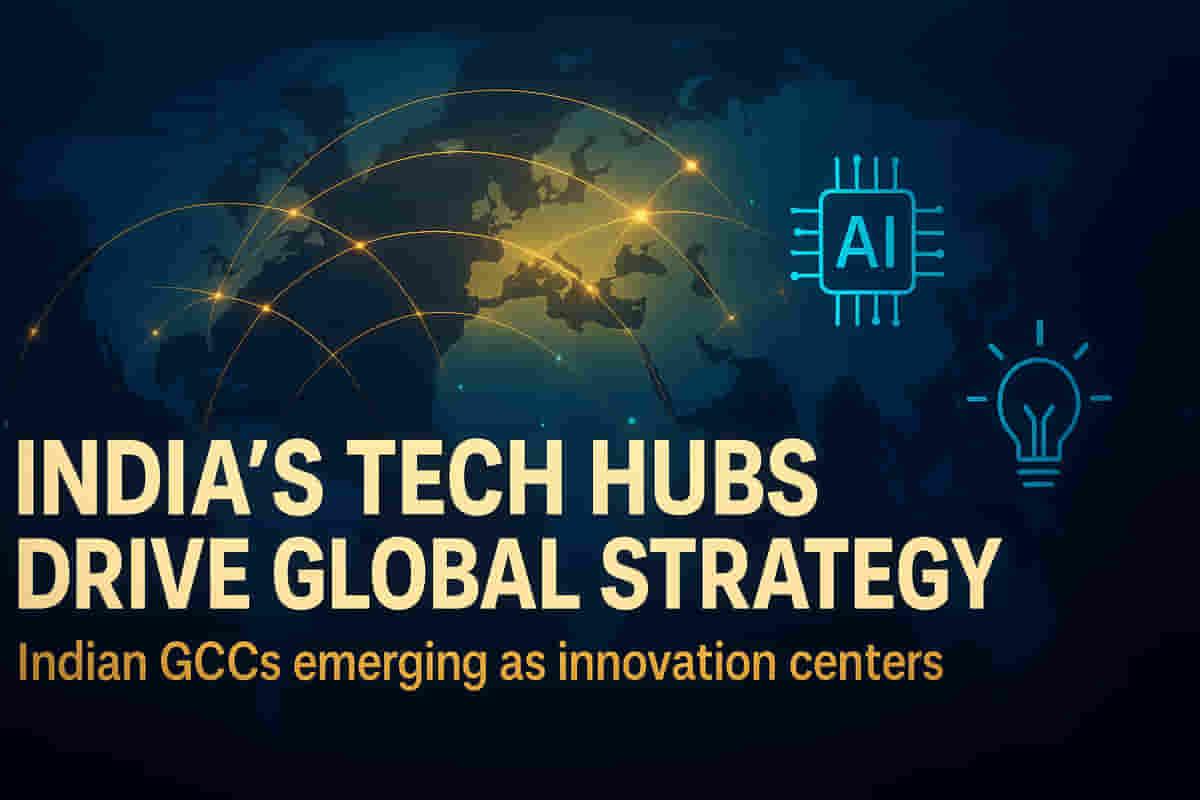Indian GCCs Evolve: From Execution Hubs to Global Strategy and Innovation Centers
Tech
|
31st October 2025, 7:06 AM

▶
Stocks Mentioned :
Short Description :
Detailed Coverage :
Global Capability Centres (GCCs) in India, historically seen as execution hubs, are now emerging as centers of strategic importance and innovation for global corporations. While Bengaluru and Hyderabad often grab headlines, Delhi-NCR has also been a significant player since the 1990s, hosting pioneering GCCs like American Express and GE (through Genpact). Today, these centers, representing 15-18% of India's over 1,700 GCCs, are entrusted with critical services, product development, and strategic decision-making.
Leaders from various companies shared insights at the Nasscom Times Techies GCC 2030 And Beyond conference. CV Raman, CTO of Maruti Suzuki India, explained how Indian engineers have progressed from handling management and sales to achieving parity with Japan in new technology discussions, citing the example of vehicles like the Maruti Suzuki Brezza and Fronx being conceived, designed, and exported from India. Pravin Goel from BlackRock detailed a journey of patience where routine tasks gradually evolved into full ownership of business units, driven by predictable execution and a young, automation-eager workforce.
Anku Jain of MediaTek noted the need to build consensus in India's diverse workforce compared to other Asian cultures, emphasizing trust and adapting to head office DNA. MediaTek India is now designing cutting-edge chips, moving beyond legacy work. The development of surrounding ecosystems, including suppliers, startups, and academic partnerships, is also crucial. Praveen Kumar from Barclays Global Service Centre (BGSC) India highlighted cross-industry collaboration, such as developing technology for Amazon's German operations from India.
The article also addresses the 'Talent Conundrum': while India boasts fantastic talent, a lack of domain-specific skills and outdated academic syllabi pose challenges. Companies are partnering with institutions to bridge these gaps, but the need for curriculum updates, especially in areas like Electric Vehicles (EVs) and Advanced Driver Assistance Systems (ADAS), is paramount.
Impact This evolution signifies a significant upward mobility for Indian GCCs, impacting the Indian stock market through increased value creation in the IT and manufacturing sectors. Companies focusing on high-value services, R&D, and innovation will likely see better growth prospects. The development of a strong ecosystem further bolsters India's position as a global tech and manufacturing powerhouse, potentially attracting more investment and fostering economic growth. Impact Rating: 8/10
Difficult Terms: GCCs (Global Capability Centres): These are offshore entities owned by multinational corporations that provide services ranging from IT and R&D to customer support and business process management. Captive Centres: An older term for GCCs, referring to an organization owned and operated by the company it serves, rather than being outsourced to a third party. OEMs (Original Equipment Manufacturers): Companies that manufacture products sold under their own brand name, often incorporating components from other suppliers. ADAS (Advanced Driver Assistance Systems): Electronic systems designed to help the driver in the driving process, enhancing safety and comfort. AI (Artificial Intelligence): The simulation of human intelligence processes by machines, especially computer systems, including learning, problem-solving, and decision-making. Proprietary Models: Business models or technologies that are owned and controlled by a specific company, not available for general use or licensing.